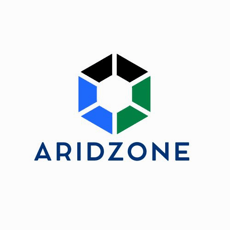Sector Focus: Real Estate, Finance, Energy, and Family Businesses Moving Toward Sustainability
Discover how Real Estate, Finance, Energy, and Family Businesses in the GCC are integrating sustainability into core strategies. With rising regulations and market expectations, sustainability is now a business imperative.
Hannan Chaaibi
5/26/20255 min read


In the GCC, sustainability is no longer a checkbox—it’s a business driver. In the GCC region, businesses across sectors are under pressure to meet rising expectations. This shift is not only driven by global environmental concerns but also by new rules and market demands. For real estate developers, finance leaders, energy firms, and family-run businesses, these changes bring both responsibility and opportunity.
Let’s look at how each sector is adjusting. And why regulatory compliance GCC is becoming part of regular business planning.
Real Estate: Shifting Toward Greener Projects
Property development in the GCC has always focused on scale, innovation, and speed. Recently, the focus is also shifting toward greener design and construction methods. Construction activities produce large volumes of carbon emissions. New rules across the region aim to cut this output.
Developers must align projects with GRI standards GCC and other reporting systems. These standards cover not just environmental impact, but also social and governance practices. The regulations also require firms to disclose how their buildings affect water usage, energy consumption, and waste generation.
Smart infrastructure is growing. Many firms are adopting new systems for waste management, renewable power, and digital energy monitoring. Instead of reacting to problems, smart buildings can help predict them.ESG compliance in the GCC reporting landscape is helping developers secure better financing. Banks now look for environmental risk reports. Investors want to see proof that projects are future-ready. These factors are making ESG tools a part of the development lifecycle.
Finance: Risk, Responsibility, and Opportunity
Banks, investment firms, and financial advisors are in a unique position. They act as gatekeepers for funding and can influence how capital is used. In the GCC, financial institutions are being asked to support sustainable projects and avoid funding those that cause long-term harm.
The need to meet CSRD compliance GCC requirements has created demand for clear frameworks. These rules encourage transparency in climate-related risk and long-term investment planning. Financial institutions are now setting internal policies that limit exposure to high-emission sectors.
There’s another reason why regulatory compliance GCC matters in finance. Global partners now expect clear records of sustainability action. Without them, access to international markets may shrink. That’s why many banks are using ISSB reporting GCC to align with global disclosure methods.
Sustainable finance products are also growing. Green bonds, climate funds, and ESG-themed portfolios are part of the new strategy. These tools help banks meet internal climate targets while meeting customer demand for responsible investment choices.
Energy: From Extraction to Innovation
The energy sector has a large carbon footprint. Traditional oil and gas firms are under intense scrutiny. Global pressure is rising, and so are the local rules. In the GCC, countries have pledged to cut emissions and move toward cleaner fuels.
To meet these goals, many companies are rethinking their approach. Renewable energy sources like solar and wind are no longer niche. They are part of national energy plans. Storage systems and clean grid technology are being tested and scaled.
Firms that once focused only on oil are now exploring carbon capture and digital energy systems. These projects not only reduce emissions but also attract partners and funding from global organizations.
As a result, energy companies must follow new reporting models. GRI standards GCC help track environmental impact. ESG compliance GCC helps firms explain their choices to regulators and investors. Both are becoming standard across the energy value chain.
Power firms are also using advanced data platforms to track compliance progress. These platforms connect with internal systems and create real-time reports. This level of detail is now expected from regulators and funding bodies.
Family Businesses: From Tradition to Responsibility
Family-run firms play a major role in the Gulf economy. Many of these firms are rooted in strong values. However, the move to sustainability is bringing new questions. Should these firms change suppliers? Should they invest in solar panels? How do they report progress?
Unlike listed companies, family firms often operate with less formal reporting. But this is changing fast. The new climate rules apply to all firms that affect the environment and communities. Even private firms are being asked to submit ISSB reporting GCC or similar disclosures.
In the past, many of these firms focused only on internal goals. Now, they need to track and share how they treat workers, manage waste, and use energy. This is where regulatory compliance GCC becomes more than a legal step. It becomes a chance to define long-term goals.
Some family firms are turning to advisors to build ESG plans. These plans guide everyday decisions like hiring, waste removal, and supply chain selection. Others are working with sustainability partners who can help set up monitoring tools and publish reports.
This change brings a new layer of trust. When firms publish data based on CSRD compliance GCC, they show clients, employees, and investors that they are ready for the future. This is helping private firms stay competitive and protect their name.
The Role of Reporting Standards
Reporting is now the core of sustainable business practice. But not all standards are equal. In the GCC, firms must choose frameworks that match local and international expectations.
Here are three commonly used ones:
GRI Standards GCC: These cover a broad range of topics, including emissions, labor, and ethics. They are useful for firms with diverse operations. GRI is widely recognized and helps meet both investor and regulator demands.
ISSB Reporting GCC: This is a newer framework that focuses on financial disclosure related to sustainability. It is popular among listed firms and those seeking cross-border funding. It helps link ESG activity with business performance.
CSRD Compliance GCC: This applies to firms that do business with the EU or plan to expand there. It is stricter than older standards and requires high-quality data. It pushes firms to show the impact of their operations on people and nature.
Why GCC Businesses Must Act Now
Regulators across the Gulf are rolling out new laws. These rules are not optional. They affect financing, project approvals, and public reputation. Many firms that fail to act face real business risk.
Governments have also set net-zero targets. Some countries plan to reduce emissions by 50% in the next two decades. These targets will shape tax policy, subsidies, and investment rules.
For example:
In Saudi Arabia, Vision 2030 includes strong sustainability goals
The UAE has a federal ESG disclosure policy in progress
Qatar’s national development plan focuses on low-carbon growth
As these rules tighten, regulatory compliance GCC will define who grows and who struggles. Firms that prepare now can move faster, access more funding, and win customer trust.
How Businesses Are Taking Action
Across the GCC, more firms are adopting formal sustainability strategies. These plans include clear steps, like:
Measuring current emissions and waste
Choosing the right reporting standards
Using software to track compliance
Partnering with experts to guide change
Creating public sustainability reports
Some companies are also investing in staff training. Teams are being taught how to collect data and use it for compliance. Others are switching to local suppliers with better ESG records. These steps are helping businesses prepare for audits, grow their brand, and compete in global markets.
Technology and Compliance
Smart tools are changing how firms track and report. Data platforms can now pull from internal systems and create ready-to-submit reports. This reduces human error and speeds up the process.
Some systems offer dashboards that show real-time updates. They help firms track energy use, emissions, and water waste. This makes reporting smoother and supports better business choices.
Automation also helps with alerts. If a project is going off track, managers get real-time notices. This helps them fix problems before they grow. Over time, this also helps reduce costs and improve project timelines.
Aridzone Sustainability can help your business stay ahead of compliance and reporting requirements across the GCC. From ESG strategies to GRI, CSRD, and ISSB reporting, we support your shift toward sustainable growth—no matter your sector. Contact us today to learn how we can support your journey.
